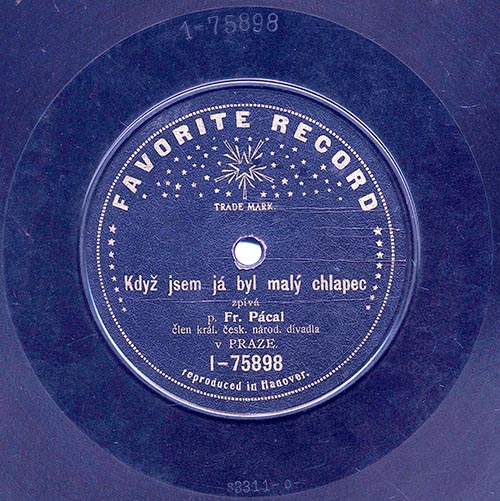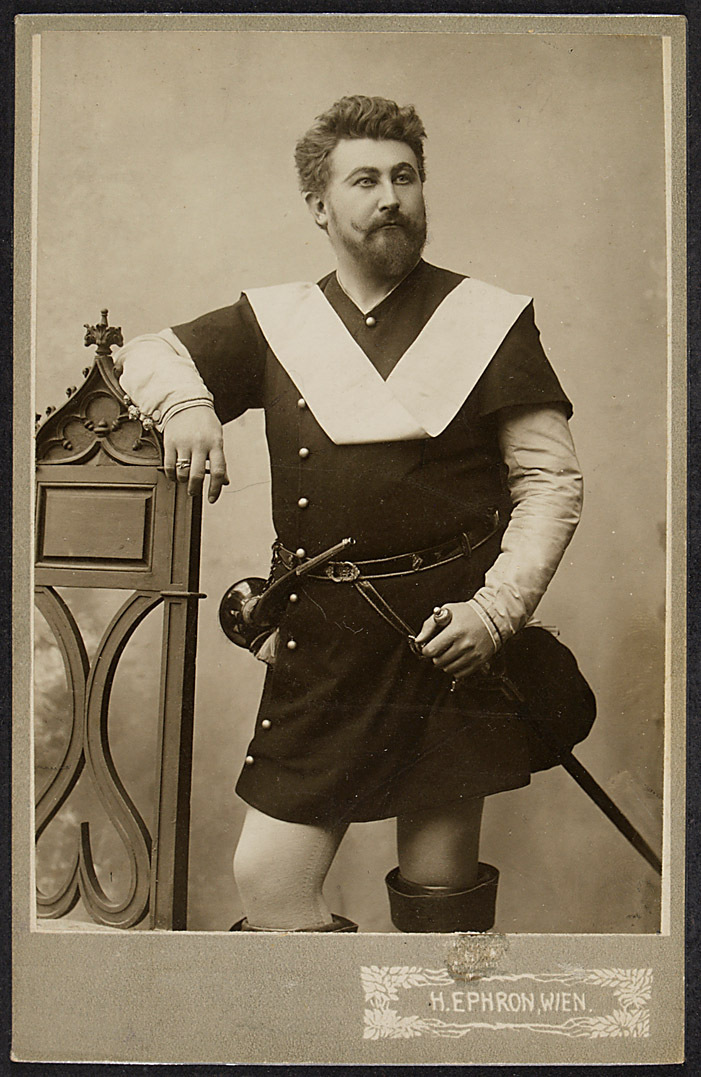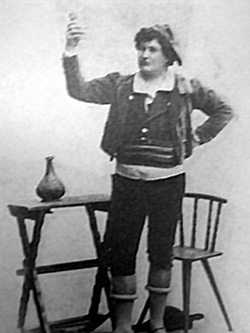František Pácal
12 April 1865 Litomyšl – 19 October 1938 Nepomuk
František Pácal as Turiddu
In RA format
In RA format

At the Prague conservatory, he studied violin; then he was a violinist in the
orchestra of the Prague National Theater from 1887 to 1892, while studying voice with Josef Lev in Prague and with Gustav Walter in Vienna. He started his tenor career as a chorister in 1892, at
the theaters of Cologne, Bremen and Graz (for one season each), under the Germanized name Franz Pacal. In 1895, he was accepted
into the choir of the Vienna Hofoper,
where he stepped in in the difficult comprimario part of the Fisherman in Guillaume Tell (19 April 1897); his success was so big
that he was promoted to soloist, singing mostly comprimario parts (from tiny to important ones) and only a few main roles until
1905: Ruiz, Giuseppe in La traviata, Normanno, Léopold, Jonas in Le prophète, Beppo, Fenton (both in Falstaff and
Die lustigen Weiber von Windsor), Turiddu, for instance.
At the National Theater in Prague (1905–09), he sang only main roles: Jeník, Gounod's Faust, Dalibor, Radamès,
Turiddu, Canio, Prince (Rusalka), Lohengrin, Tannhäuser, Erik, Otello, Vasco da Gama, Masaniello, Hüon, Assad (Die
Königin von Saba by Goldmark), Julien and a few others. He then went to Riga for two years, breaking his Prague contract,
which is why he was confined to smaller Czech theaters when returning in 1911: Brno, Pardubice, the Vinohrady Theater in Prague,
plus Poznań/Posen (then Germany, now Poland). For a short time, he was also the manager of the U labutě
cabaret in Prague. In World War I, Pácal worked as an senior official for the Prague grain office; after the war, he
definitely gave up his career as a singer and became a clerk in Prešov (East Slovakia).
Reference 1; reference 2: Kutsch & Riemens;
reference 3: archives of the Wiener Staatsoper
Source for the picture (top)
I wish to thank Anton Bieber for the recording of the Novotný song, and the relative label scan.
I wish to thank Vladimir Efimenko for the picture (Turiddu) and recordings (Rusalka, Marenko).
|


